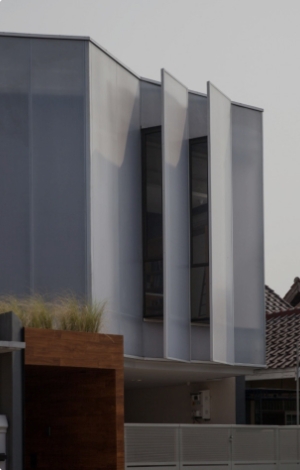Explore the Design Behind the Immersive, Nature-Based Stay Experience of Bobobox Cabin 3.0




Bobobox has established its reputation as a lifestyle company specializing in accommodation products. The company has become one of the key players in reshaping Indonesia's hospitality scene through its futuristic capsule hotel, Bobopod, and thoughtfully designed cabins, Bobocabin.
Aiming to improve its cabin design based on guest feedback, Bobobox unveils its latest cabin design, Cabin 3.0, inviting guests into a more immersive, nature-based experience while staying.

With its sensory journey design, Cabin 3.0 allows guests to experience nature at its best. The cabin shows significant distinctions at first glance, compared to its predecessors. It has bigger window frames and a side terrace, along with a more seamless indoor-outdoor spaces integration. In this way, guests can feel like they are both inside and outside, which is necessary for the kind of experiences they are looking for.

The use of large glass panels offers nature experience to guests while staying comfortably inside the cabin. The adjustable sliding door/window on the side opens up the space for more interaction with surrounding environments. These design elements ensure a deep experience in the cabin as well as maintain the space functionality.

As a tech-enabled accommodation company, Bobobox also implements new technological innovations to enhance the guest's journey. Each embedded technology is ensured to become a part of the experience, rather than just a standalone feature. In order to give seamless check-in and checkout process for guests, the self-service kiosk and smart door lock is introduced. The notable smart tablet, B-Pad, has also been improved. It now offers a wider selection of white noise options, window curtain control, various lamp settings, and even F&B ordering.

Each version of Bobocabin is designed to remain timeless, including Cabin 3.0. It does not conform to particular stylistic trends. The implementation of minimal ornaments and natural materials such as wood creates a cabin that feels grounded in its natural surroundings. The cabin is also designed for easier maintenance and operational efficiency so the cabin can withstand the challenges posed by its natural environment.

Bobobox takes careful steps to minimize disruption to the surrounding vegetation in nature where the cabin is built. Each cabin can be easily assembled and disassembled as it comes with a modular design approach. "Design to Disassemble" principle is adopted to make sure every component remains in its original material and later can be taken apart easily for reuse and recycle.
The modular design approach also minimizes land conversion compared to conventional hotel construction. By preserving natural land cover, Cabin 3.0 maintains the land's water absorption capacity, therefore preventing excessive runoff and mitigating downstream impacts.

Bobobox gives experience, functionality, and aesthetic elements through Bobocabin. As the leading cabin and capsule hotel operator in Indonesia, Bobobox intends to keep defining "what's next" for accommodation products and adapting to customers' evolving lifestyle— with Cabin 3.0 and more products to come.




 Australia
Australia
 New Zealand
New Zealand
 Philippines
Philippines
 Hongkong
Hongkong
 Singapore
Singapore
 Malaysia
Malaysia







